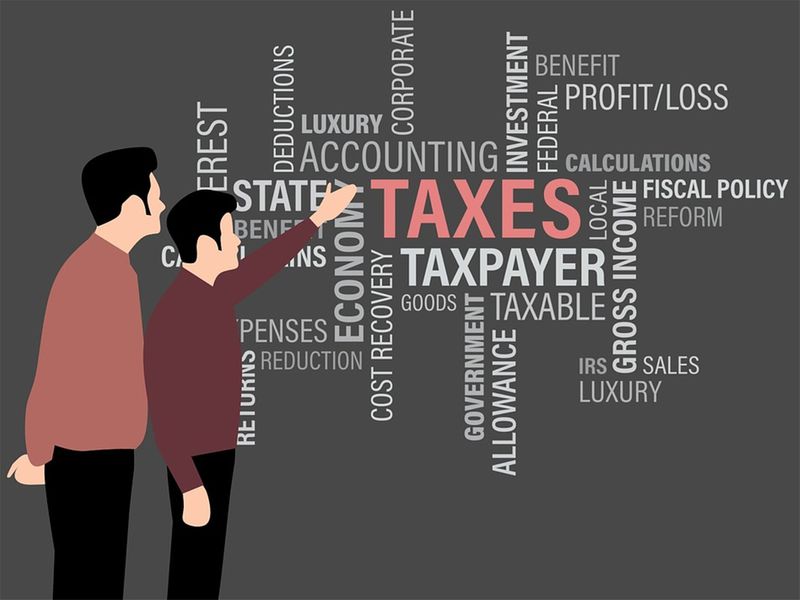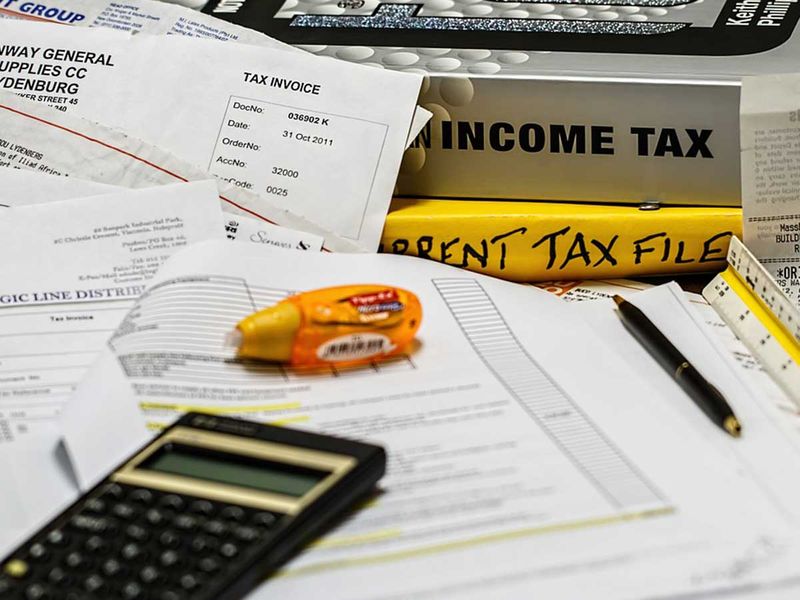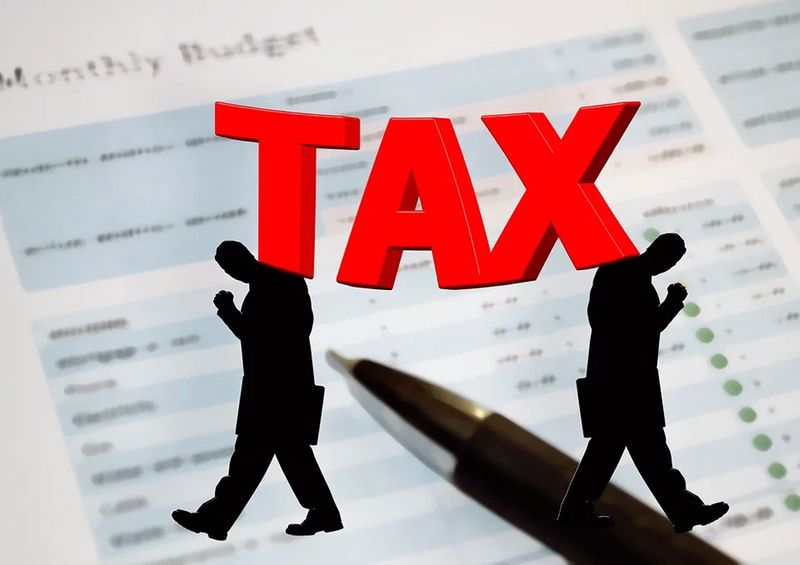
So, you’ve enjoyed life as an expat in the UAE or the Middle East for a few years and you’re thinking about returning home to Ireland? Or you’re looking for a new opportunity in Ireland with one of the multinational tech, pharma, financial or biotech companies that call the island home?
Then, you’ll need to arm yourself with all of the facts about taxes before you make that decision on your future. Here’s a guide to provide you with all you need to know about moving to Ireland and the taxes you will encounter living and working there.
Life, death and taxes
It’s said there are three certainties in the world – life, death and taxes. But if you are fully prepared and know in advance what your liabilities might be, the taxation web in Ireland can be navigated to make sure that you paid your fair share – and use all of the tax-saving measures open to you.
According to Eurostat, the European Union’s statistics agency, tax rates in the Republic of Ireland are generally in line with averages across the 27-member bloc. Statistically speaking, the ratio between gross taxes paid and gross income is in line with the EU average of 36 per cent. Across with 36 nations aligned with the OECD (the Organisation for Economic and Social Development), the average tax paid in every sector – not just personal taxes but those also paid by businesses and by consumers – people living in Ireland pay 28 per cent on average. Across the EU, it’s also 28 per cent on average and 27 per cent in OECD countries.

Why income taxes?
If you’ve living in a low-taxation jurisdiction such as the UAE or the other five nations belonging to the Gulf Cooperation Council, the notion of paying taxes on your income might be difficult to fathom.
Elsewhere, paying taxes on your income – income tax – is a fact of life. Generally, in the UAE, you’ll only pay services fees for using government, municipal or electric, water and cooling services, or a residency fee based on your rent paid. You’ll only pay taxes on items that you consume or services you use – Value Added Tax (VAT) – which was introduced in January 2018 at a standard rate of 5 per cent.
Income taxes, however, can’t be avoided – but your tax liabilities can be reduced using the full range of deductibles and other measures explained here.
A changing environment
It’s important to remember that income tax rates and all of the rules change regularly, often with an annual budget published by the government. And taxation in Ireland is a hot button issue. There has just been a general election in Ireland, a new government has yet to be formed, and income taxes and other payroll taxes may change as a result. That’s why it’s important to check your individual situation with the Revenue Commissioners, who are responsible for collecting and implementing taxes based on government directives and legal framework.
Residency and taxes
The taxes you will pay in Ireland will depend on whether you are a resident there or whether it is your permanent home. This is important. There is a specific definition depending on the number of days you will spend in the country in a tax year.
The tax year
Generally, a tax year is defined as a 12-month period used to calculate your potential taxes. Some countries use April 1 to March 31 as a tax year, others use the calendar year as the tax year. Ireland uses the calendar year, from January 1 to December 31 to calculate income taxes.
The Revenue Commissioners determine you to be a tax resident if:
• You spend 183 days or more in Ireland in that year from January 1 to December 31 or;
• You spend 280 days or more in Ireland over a period of two consecutive tax years, you will be regarded as resident for the second tax year.
• Let’s say, for example, if you spend 140 days in Ireland in Year 1 and 150 days here in Year 2, you will be resident in Ireland for Year 2.
• You are treated as being present in Ireland if you are there for any part of a day.
• If you have any doubt or intend to plan your tax liabilities on residency or absence from Ireland, it is important that you keep clear and comprehensive proof of arriving and leaving – plane or ferry tickets for instance – and that is no discernable evidence of normal living activities in Ireland or your banking records during the period of your claimed absence from Ireland.
• A Netflix subscription would be permissible on your banking records, for example, but not the purchase of petrol, meals, clothing or other goods and services that were consumed in Ireland during the period of claimed absence from Ireland.

Your Personal Public Service number
If you’ve lived or worked in Ireland before, you are most likely to have a Personal Public Service (PPS) number. This is a number that is assigned to you, is unique to you, and is used to access your information on file with the Revenue Commissioners and other governmental agencies in Ireland. Think of it as being the same as your UAE National Identification number.
Your PPS number is your key to accessing public services in Ireland, such as healthcare and education. You’ll also need to provide it to your employer so you can be paid and for tax purposes.
• You cannot apply for a PPS number from outside of Ireland.
• Applying for a PPS number should be one of the first things you do on arrival.
• To apply, you’ll need to visit your local PPS Number Registration Centre. There are 126 of these located around Ireland. Some in smaller towns may have limited operating hours so it’s good to check online or call beforehand.
• In Dublin, you have to first make an appointment via the MyWelfare website.
• When applying, make sure you bring valid photo identification such as a passport and proof of address.
• If you don’t yet have a utility bill for electricity, gas or other services such as broadband – mobile phone contracts are generally not accepted – or if your name is not on a tenancy agreement, your employer can provide a letter verifying your address and stating you are living and working in Ireland.

Choosing to be a resident for tax purposes
If you arrive in Ireland in a particular year but haven't got the required number of days for tax purposes – less than the 183 days – you can still choose to be resident for that year if you are also going to be a resident in the following year. You need to contact the Revenue Commissioners or your nearest tax office by following this link: https://www.gov.ie/en/service/find-your-local-revenue-office/
Residence for married couples or civil partners
For a married couple or civil partners, the residence status of each person is assessed independently of the other.
• It is possible for one spouse or civil partner to be resident and the other to be non-resident.
• If your residence status differs from your spouse or civil partner, you can choose to be treated as single people for tax purposes if it is more beneficial.
• If you are resident and employed in Ireland but your spouse or civil partner is not resident in Ireland – and has no income – so that your earnings are the only source of income, then it may be possible to claim the Married or Civil Partner's Tax Credit and the increased tax rate band. You can do this after the end of the tax year when you file a return of income, which includes a declaration about your spouse or civil partner's income.

Other statutory deductions
Sorry, but income tax isn’t the only statutory dedication to be withheld from your salary. Your employer will also be required by law to take the following deductions from your pay cheque:
• PSRI: Pay Related Social Insurance is a deduction used to fund pensions, social welfare and unemployment benefits. Those earning less than €352 (Dh1,397) per week are exempt from paying PSRI. Those earning more than the €352 weekly threshold pay at a current rate of 4 per cent.
• USC: The Universal Social Charge is an additional tax on income that was introduced in 2011 and replaced two other pre-existing levies. USC is calculated and deduced from earnings based on the current formula
- 0.5 per cent on the first €12,012 (Dh47,680), which amounts to €60.06 (Dh283)
- 2 per cent on the next €8,471 (Dh33,624), which amounts to €169.44 (Dh672)
- 4.5 per cent on the next €29,516 (Dh117,163), which amounts to €1,328.22 (Dh5,272).
• It’s important to remember that USC is a very contentious payroll tax and its implementation was an issue for many political parties during Ireland’s general election in early February 2020. A government has yet to be formed and, depending on the makeup of the new government and how quickly it can arrange for a budget restatement of Ireland’s finances, the USC deduction may change or may be abolished. You should check on the Revenue Commissioners’ website for any changes and the current rates.
Calculating your taxable income
To understand how much income tax you will pay on your income, you will need to understand how tax credits and rate bands work. You will also need a tax certificate that’s issued by the Revenue Commissioners. Here’s what you need to know:
• Gross pay and taxable pay: Gross pay is the employee’s pay of any kind – including earnings for work done or share-based remuneration – before any pension contributions or ‘salary sacrifice’ deductions are made.
• Salary sacrifice deductions: These generally mean an arrangement under which an employee forgoes the right to receive any part of his or her remuneration and receives a benefit in kind in return – bus or ferry tickets might be an example. It’s highly complex, and check with the Revenue Commissioners for further details. Generally, it’s a term that applies to a small minority rather than the vast majority of taxpayers.
• Tax Credits: These are just as the name suggests – amounts of your income on which your total income tax won’t be payable.
• Personal Tax Credit: Everyone resident in Ireland is entitled to a Personal Tax Credit. The Personal Tax Credit you get depends on whether you are single; married or in a civil partnership; widowed or a surviving civil partner; separated, divorced or a former civil partner.
• The current basic Personal Tax Credit rates are €1,650 (Dh6,578) for a single person or €3,300 (Dh13,156) for a married person or civil partner. Check with the Revenue Commissioners for your own personal circumstances - if you are widowed with children or are supporting elderly parents or those in need of special care.
• Additional tax credits: Depending on your personal circumstances, you might also be entitled to additional tax credits (https://www.revenue.ie/en/jobs-and-pensions/tax-credits/index.aspx), for example if you are aged 65 years or older.

How tax credits work
• If you are an employee, then your tax credits will be shown on your Tax Credit Certificate. Your employer will be notified of your total tax credits. They will not be given a breakdown of your tax credits, only the total amount. Your employer will use this to calculate the amount of tax to deduct from your weekly or monthly pay.
• Under the Pay As You Earn (PAYE) system, tax credits are spread evenly throughout the year. If you are working for the full year, depending on how often you get paid, your tax credits will be divided into 52 weekly equal amounts or 12 monthly equal amounts.
• If you have a second or multiple jobs (https://www.revenue.ie/en/jobs-and-pensions/what-is-paye/index.aspx), you can divide your tax credits between them.
What is a tax rate band?
A tax rate band is the amount of income which will be taxed at a particular percentage (tax rate). The current tax rates are 20 per cent and 40 per cent. A portion of your income will be taxed at 20 per cent and the remainder will be taxed at 40 per cent.
• Standard rate of tax: Your income up to a certain limit is taxed at the ‘standard rate’ of Income Tax, which is currently 20 per cent. This is known as the standard rate band.
• Higher rate of tax: Any income above your standard rate band is taxed at the higher rate of Income Tax, which is currently 40 per cent.
How rate bands work
If you are an employee, then your tax rate band will be shown on your Tax Credit Certificate. Your employer will use this to calculate the amount of tax to deduct from your weekly or monthly pay.
• Under the Pay As You Earn (PAYE) system, tax rate bands are spread evenly throughout the year. If you are working for the full year, depending on how often you get paid, your tax rate bands will be divided into 52 equal weekly amounts or 12 equal monthly amounts.
• If you have a second or multiple jobs, you can divide your rate band between them.
Unused rate bands
You cannot get a refund of any unused tax rate bands and you cannot carry them over into another tax year.
In 2020, the standard (20 per cent) rate band for couples in a marriage or civil partnership is €44,300 (Dh176,600). If both people are working, it is increased by the lower amount of either €26,300 (Dh104,896) or the income of the lower earner.
This means that the maximum standard rate band a couple can have is €70,600 (€44,300 plus €26,300). It is not possible for one person to use the full amount of €70,600. An individual can have no more than €44,300 unless they have additional reliefs. Check with the Revenue Commissioners for those further reliefs.
What is a Tax Credit Certificate?
Your Tax Credit Certificate (TCC) is a key document that is issued each year and will list your specific details:
• Tax Credits, reliefs and your band rate;
• Universal Service Charge rates and band rate;
• Employment Identifier, a unique reference set by your employer for your employment.
• When you start your job, you must inform the Revenue Commissioners as soon as possible, or you may have to pay emergency tax.
• Revenue Payroll Notification (RPN), is a unique number that shows your total tax credits, your tax and USC rate bands. It will not give a breakdown of the tax credits you have claimed, only the total amount. Your employer will use this to calculate your tax and USC.
If you are paid fortnightly or monthly, the same principles apply.
Normal emergency tax rules
• Under these rules, you are allowed a single person’s rate band for the first four weeks of employment.
• You will be taxed at the standard rate (20 per cent) on income up to the limit of your rate band. Any income above that limit will be at the higher rate (40 per cent).
• From week 5 onwards, your full income will be taxed at the higher rate (40 per cent).
Emergency Universal Social Charge: The emergency rate of USC is a flat rate of 8 per cent applied to all income.
• When your tax situation has been regularised, you may be entitled to a refund at the end of the tax year if you have overpaid taxes, which most often occurs in an emergency tax situation.








